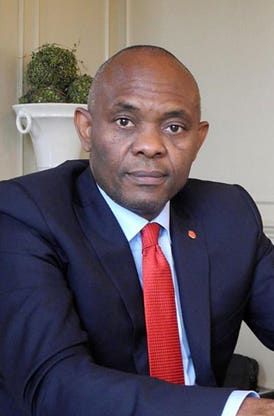The United Bank for Africa (UBA) has launched white paper aimed at mobilising domestic capital across Africa to boost development financing and reduce the continent’s reliance on foreign aid.
The document, titled “Banking on Africa’s Future: Unlocking Capital and Partnerships for Sustainable Growth,” was unveiled on the sidelines of the 2025 IMF–World Bank Annual Meetings in Washington, D.C.
UBA Group Chairman, Tony Elumelu, said Africa’s development challenge is not the absence of capital but the inability to effectively deploy existing resources.
“There is an abundance of capital in Africa, but it is fragmented. Having capital that cannot be accessed or used effectively is as good as not having it,” Elumelu said.
According to the report, Africa holds over $2.5 trillion in commercial bank assets, $1.1 trillion in long-term institutional capital, and hundreds of billions more in other savings and reserves. Much of this capital remains idle due to restrictive regulations and limited investment channels.
Mobilising Domestic Wealth
The white paper proposes strategies to activate institutional investors, such as pension funds and sovereign wealth institutions, through public–private partnerships (PPPs), blended finance, and regulatory reforms that make domestic investment more attractive.
It also highlights the potential of platforms like the African Continental Free Trade Area (AfCFTA) and the Pan-African Payment and Settlement System (PAPSS) to boost intra-African trade and capital mobility.
Elumelu noted that unlocking domestic resources will create a foundation for long-term development in infrastructure, digital innovation, and energy.
“Electricity is so critical to power data and the AI revolution,” he said. “Over 50 percent of Africa’s population still lacks reliable power. If we don’t fix this, we are doomed.”
Government Applauds Initiative
Nigeria’s Minister of State for Finance, Dr. Doris Uzoka-Anite, who attended the launch, praised UBA’s initiative, describing it as a model for private-sector leadership in Africa’s economic transformation.
“You’re putting your money where your heart is,” she said. “Aligning private-sector ambition with government reform is exactly what Africa needs.”
She noted that Nigeria’s economic reforms—including fuel subsidy removal, FX liberalisation, and improved fiscal discipline—are beginning to yield results, with four consecutive quarters of growth recorded.
Uzoka-Anite also acknowledged the need for better fiscal design to balance government borrowing and private-sector access to credit, adding that Nigeria remains committed to deepening access to capital and fostering sustainable growth.
Next Steps: From Ideas to Action
Elumelu stressed that the real work begins after the publication of the white paper.“The next critical step is execution. What we have done here today is less than one percent of the work. What matters is what happens after this,” he said.
He called for accountability, transparency, and strong governance as key ingredients for unlocking Africa’s hidden wealth and driving inclusive development.
The white paper presents a comprehensive and actionable framework for unlocking Africa’s vast economic potential, providing analysis of critical growth pillars including trade facilitation, infrastructure development, digital innovation, climate finance, and inclusive growth, while showcasing strategies for leveraging domestic capital alongside strategic global partnerships to access the continent’s $3.4 trillion single market potential under the African Continental Free Trade Area (AfCFTA).
United Bank for Africa is one of the largest employers in the financial sector on the African continent, with more than 25,000 employees group-wide and serving over 45 million customers globally. Operating in twenty African countries and the United Kingdom, the United States of America, France, and the United Arab Emirates, UBA provides retail, commercial, and institutional banking services, leading financial inclusion and implementing cutting-edge technology.









